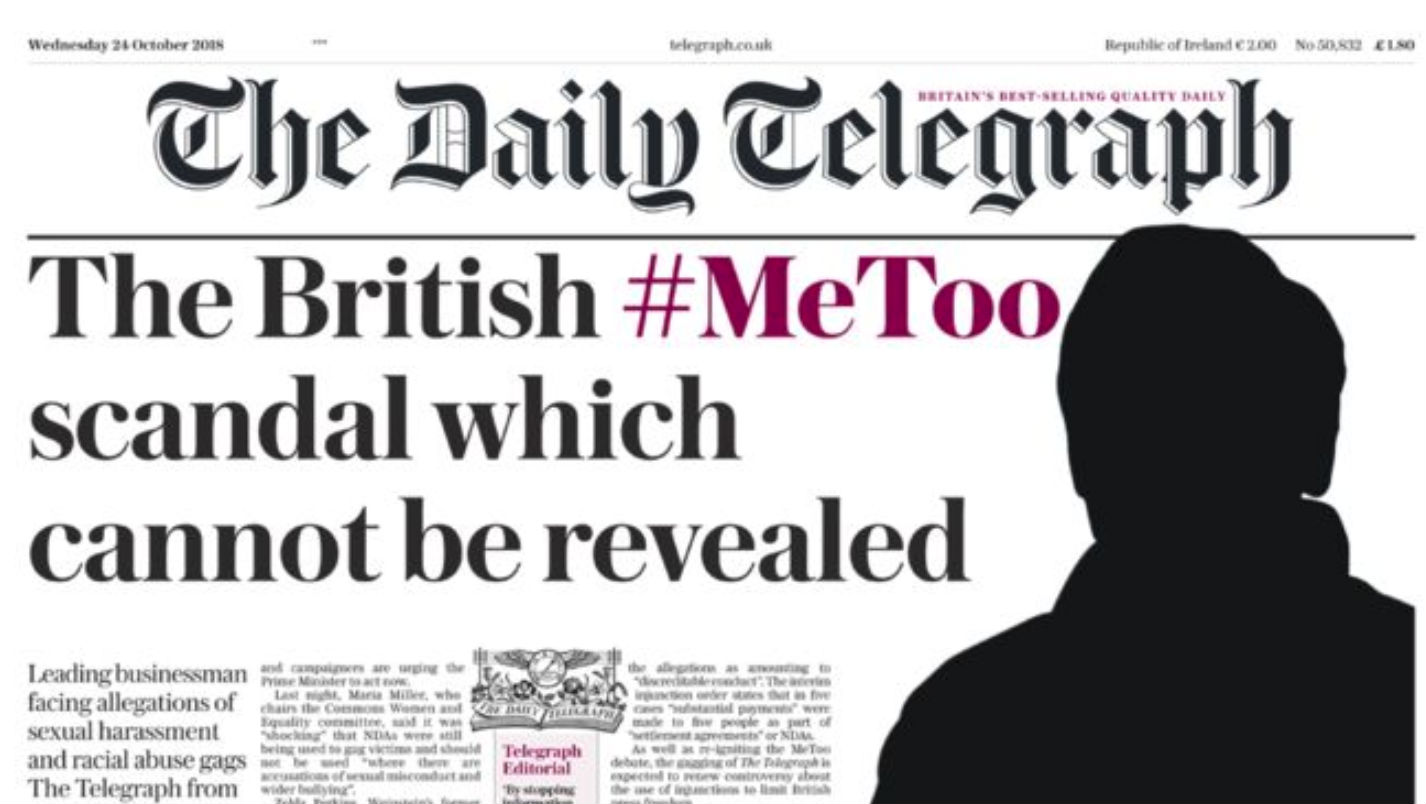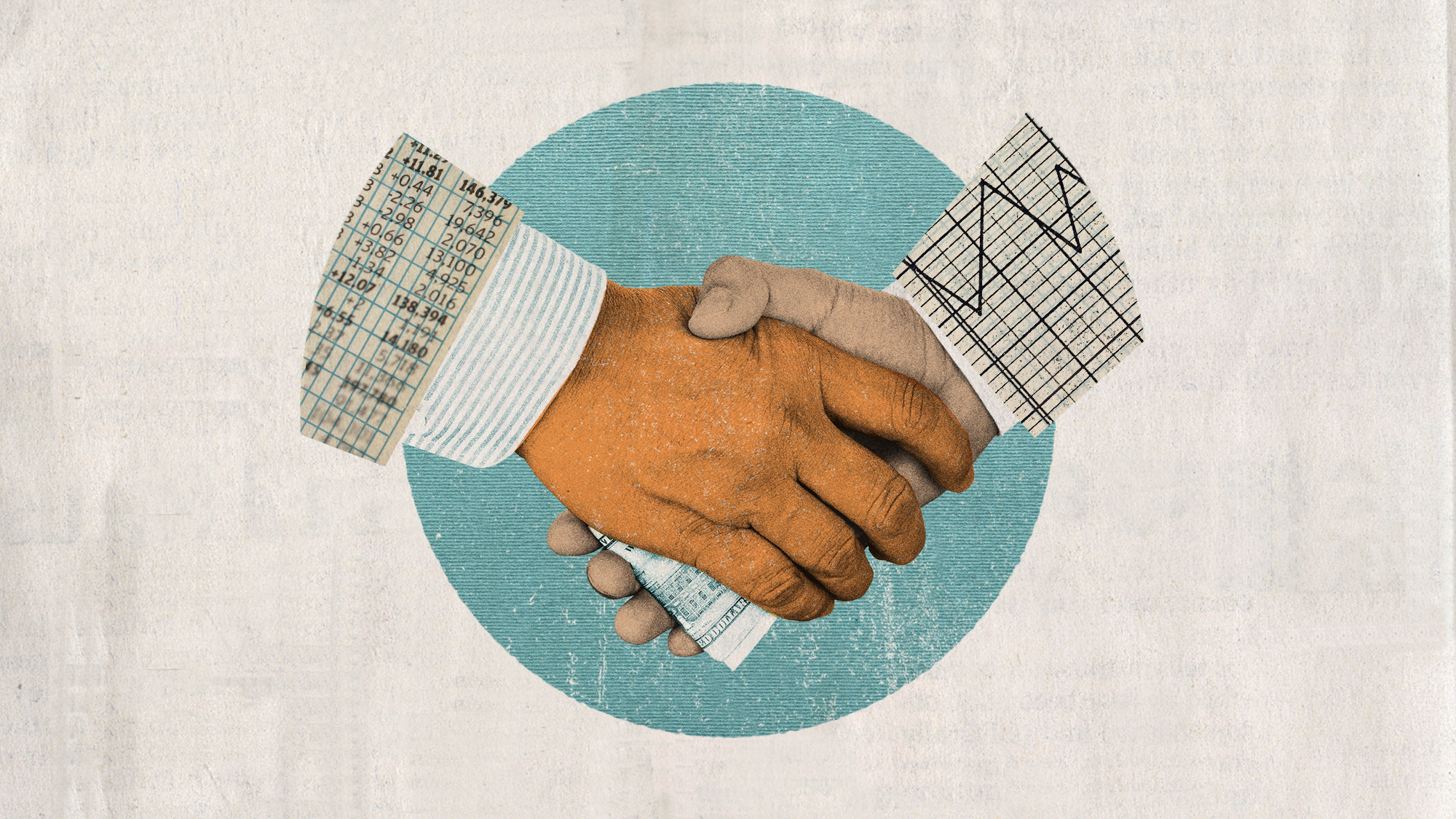Who is mystery businessman at heart of Telegraph’s #MeToo expose?
Court of Appeal stops newspaper publishing findings of eight-month investigation into harassment claims

A free daily email with the biggest news stories of the day – and the best features from TheWeek.com
You are now subscribed
Your newsletter sign-up was successful
A leading British businessman has won a legal battle in the Court of Appeal to prevent The Daily Telegraph naming him as part of an investigation into harassment.
The newspaper spent eight months investigating allegations of racial abuse, intimidation and sexual harassment made against the businessman by five of his staff members.
All five had been silenced with “settlement agreements” under which they received “substantial payments”, otherwise known as non-disclosure agreements, or NDAs.
The Week
Escape your echo chamber. Get the facts behind the news, plus analysis from multiple perspectives.

Sign up for The Week's Free Newsletters
From our morning news briefing to a weekly Good News Newsletter, get the best of The Week delivered directly to your inbox.
From our morning news briefing to a weekly Good News Newsletter, get the best of The Week delivered directly to your inbox.
The Telegraph draws parallels with Harvey Weinstein’s use of NDAs to pay off accusers, and says that publishing the allegations against the British businessman would “be sure to reignite the #MeToo movement against the mistreatment of women, minorities and others by powerful employers”.
But after the paper contacted the accused boss for comment in July, he and a number of his senior staff applied for an injunction to stop the details being published - a request granted by three Court of Appeal judges on Tuesday.
The decision comes after a High Court judge refused to grant the gagging order in August. The Court of Appeal disagreed with the prior verdict, arguing that the staff making the allegations had been “compromised” by the settlement deals.
However, lawyers have pointed out that the latest court ruling says the injunction is an “interim injunction” that preserves “confidentiality pending a full trial”. In essence, this means the “legal process is not over”, tweets the author and lawyer known as The Secret Barrister.
A free daily email with the biggest news stories of the day – and the best features from TheWeek.com
The issue is further complicated by the fact that “two of the staff who made the accusations against the businessman supported the injunction”, says the BBC’s Clive Coleman.
“This may seem odd but it’s not unusual, as some people, even victims, don’t want a problem at work to follow them afterwards,” he adds.
Telegraph editor Chris Evans has argued that the public “have a right to know when the powerful seek to gag the vulnerable”.
According to Buzzfeed News’ Mark Di Stefano, Evans emailed staff at the paper last night vowing to fight the court order, saying: “We think it is overwhelmingly in the public interest that this story of ours be told and we are confident that, eventually, we will overturn the injunction.”
The ruling renders it illegal to disclose the businessman’s identity or that of his businesses, how much he paid his accusers, and the nature of the allegations.
But, his identity could be revealed in Parliament thanks to parliamentary privilege, which grants MPs certain legal immunities from being sued over what they say in the House.
Labour MP Jess Phillips hinted at this possibility in a tweet last night.
Although Phillips did not name the individual during Prime Minister’s Questions yesterday, she did ask Theresa May whether she thought the injunction was a problem.
The prime minister replied that while she could not discuss the specific case, she agreed that “there is a wider problem with the use of non-disclosure agreements to keep people quiet”.
-
 Local elections 2026: where are they and who is expected to win?
Local elections 2026: where are they and who is expected to win?The Explainer Labour is braced for heavy losses and U-turn on postponing some council elections hasn’t helped the party’s prospects
-
 6 of the world’s most accessible destinations
6 of the world’s most accessible destinationsThe Week Recommends Experience all of Berlin, Singapore and Sydney
-
 How the FCC’s ‘equal time’ rule works
How the FCC’s ‘equal time’ rule worksIn the Spotlight The law is at the heart of the Colbert-CBS conflict
-
 Companies are increasingly AI washing
Companies are increasingly AI washingThe explainer Imaginary technology is taking jobs
-
 Why is pizza in decline?
Why is pizza in decline?In the Spotlight The humble pie is getting humbler
-
 How prediction markets have spread to politics
How prediction markets have spread to politicsThe explainer Everything’s a gamble
-
 SiriusXM hopes a new Howard Stern deal can turn its fortunes around
SiriusXM hopes a new Howard Stern deal can turn its fortunes aroundThe Explainer The company has been steadily losing subscribers
-
 How will China’s $1 trillion trade surplus change the world economy?
How will China’s $1 trillion trade surplus change the world economy?Today’s Big Question Europe may impose its own tariffs
-
 Job hugging: the growing trend of clinging to your job
Job hugging: the growing trend of clinging to your jobIn the Spotlight People are staying in their jobs longer than ever
-
 Is Trump America's CEO?
Is Trump America's CEO?Talking Points The party of free enterprise turns to 'cronyism'
-
 Why 'faceless bots' are interviewing job hunters
Why 'faceless bots' are interviewing job huntersIn The Spotlight Artificial intelligence is taking over a crucial part of recruitment